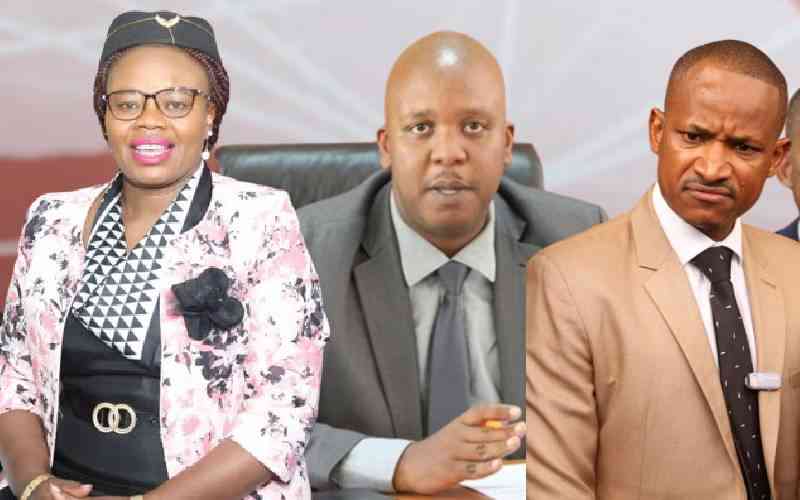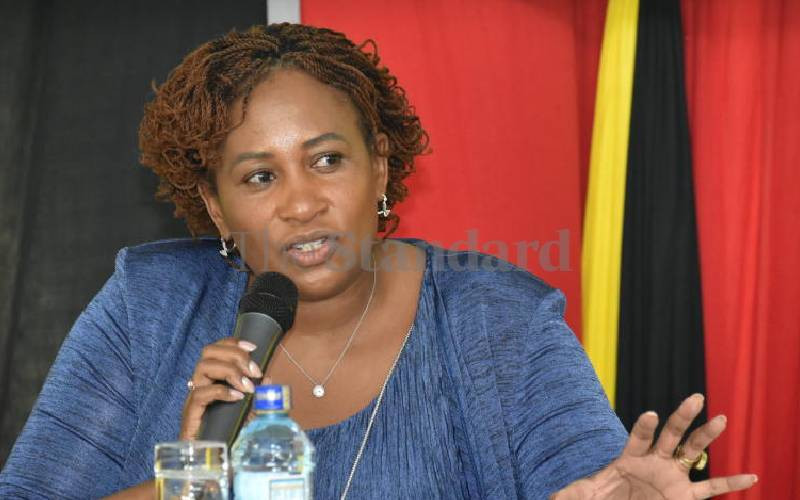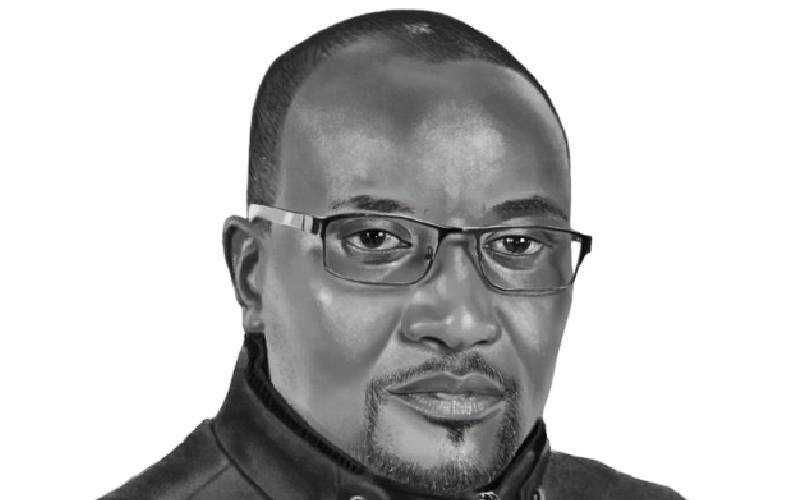 |
|
Former Prime Minister Raila Odinga before and after dying his hair. (Photos:File/Standard) |
Kenya: Nelson Mandela remains one of the few truly iconic individuals in history. Like an international brand, his figure was the most recognisable, having gained acceptance in almost every corner of the planet.
Apart from his famous, brightly coloured ‘Madiba’ shirts, Mandela was easily recognised by his white hair that covered his head like fresh wool. Unlike many of his contemporaries, Mandela never tried to apply hair darkening substances in a bid to hide his ‘crown of wisdom’.
Around the world, however, men and women dye their hair black as soon as streaks of grey start to appear. For this story, we focus on men, especially public figures.
Although this is a personal matter, many theories have been advanced about to why men take to this ritual. Chief among them is the desire to retain the youthful looks they once had. From musicians to actors and even presidents, dyeing the hair has become fashionable.
Even Barack Obama was rumoured to have joined the bandwagon before his wife flatly denied it. He now sports lots of grey. On the other hand, one of Africa’s longest serving leaders, President Robert Mugabe of Zimbabwe, has a jet-black top despite the vagaries of old age catching up with the 90-year-old leader.
Locally, a good number of men, now in their late 50s, 60s and even 70s, have dyed their hair.
 |
|
Look at the transformation hair dye has given Mining Cabinet Secretary Najib Balala. (Photos:File/Standard) |
In the 1990s, for example, a number of prominent politicians such as former Prime Minister Raila Odinga and Kisumu Senator Anyang Nyong’o sported grey hair but currently have a completely new look.
The late Cabinet minister George Saitoti too, was greying but had metamorphosed by the time of his death. However, former Vice President Kalonzo Musyoka has had his pitch black hair for as long as anyone can remember.
It should be noted that hair turns grey at a different rate and age for different people. Due to genetic factors, for instance, some young people sport grey hair from an early age while some older persons have not had their hair turn grey even in their 60s.
 |
|
The late George Saitoti too chose to keep the youthful look. (Photos:File/Standard) |
Opinions on whether men should dye their hair to hide the emerging grey are vast and varied. Susan Nyakimencha, a creative designer, is of the opinion that there is no point in trying to conceal a natural occurrence.
“I feel that one should age gracefully and grey hair is one sign that one has matured. Why hide your age when everyone knows that you are no longer young?” poses Susan.
However, she says, there is nothing wrong with whatever choices one makes regarding personal grooming as long as they do not interfere with the rights of others.
Among the things that Simon Mwakazi, a young artist, will consider are the perceptions of other people he would be interacting with. He says he might be forced to apply hair dye if people can no longer identify with his new look on the top.
“Inability to tie the shoelaces due to a growing stomach may move a person to seriously think about weight loss. Similarly, if my day to day activities are affected because of the look on my head, then I would act accordingly,” says Mwakazi.
 |
|
Former President Mwai Kibaki in grey hair and his new look (right) in 2002 ahead of presidential campaign. (Photos:File/Standard) |
Tony Airo, a hair stylist, says dyeing the hair for men boosts their self-esteem, especially in the company of their wives or girlfriends. He says that when his women clients go home with the nice hairdos, their husbands are very eager to know the secret to their new looks.
Stay informed. Subscribe to our newsletter
In subtle ways, says Airo, the woman gives hints on how good the man’s hair could look if he too, visits a hair stylist.
“Most of the male clients who come for hair dyeing are usually referred to me by their wives who are also my clients. In turn, some of these men attract the attention of their friends who want the same services and the trend continues,” says Airo whose services extend to the homes of some high-profile Kenyan men.
 The Standard Group Plc is a
multi-media organization with investments in media platforms spanning newspaper
print operations, television, radio broadcasting, digital and online services. The
Standard Group is recognized as a leading multi-media house in Kenya with a key
influence in matters of national and international interest.
The Standard Group Plc is a
multi-media organization with investments in media platforms spanning newspaper
print operations, television, radio broadcasting, digital and online services. The
Standard Group is recognized as a leading multi-media house in Kenya with a key
influence in matters of national and international interest.
 The Standard Group Plc is a
multi-media organization with investments in media platforms spanning newspaper
print operations, television, radio broadcasting, digital and online services. The
Standard Group is recognized as a leading multi-media house in Kenya with a key
influence in matters of national and international interest.
The Standard Group Plc is a
multi-media organization with investments in media platforms spanning newspaper
print operations, television, radio broadcasting, digital and online services. The
Standard Group is recognized as a leading multi-media house in Kenya with a key
influence in matters of national and international interest.












